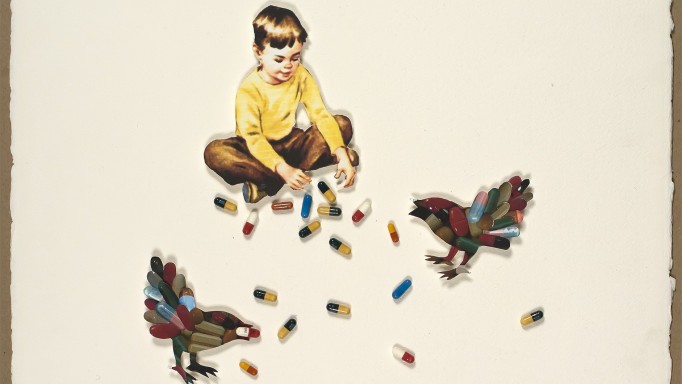Write a Comment
7 Comments
Hi Tim, Ironically, Zimbabwe too has protection from discrimination based on sex written into it's constitution - Article 23. The language is more convoluted than in the Malawian and Ugandan constitutions, but protection against discrimination is in there too. Odd that the media never mentions this. Or never mentioned it in the cases of Malawi or Uganda. http://www.parlzim.gov.zw/inside.aspx?mpgid=25&spid=68 23 Protection from discrimination on the grounds of race, etc. (1) Subject to the provisions of this section— (a) no law shall make any provision that is discriminatory either of itself or in its effect; and (b) no person shall be treated in a discriminatory manner by any person acting by virtue of any written law or in the performance of the functions of any public office or any public authority. (2) For the purposes of subsection (1), a law shall be regarded as making a provision that is discriminatory and a person shall be regarded as having been treated in a discriminatory manner if, as a result of that law or treatment, persons of a particular description by race, tribe, place of origin, political opinions, colour, creed, sex, gender, marital status or physical disability are prejudiced— (a) by being subjected to a condition, restriction or disability to which other persons of another such description are not made subject; or (b) by the according to persons of another such description of a privilege or advantage which is not accorded to persons of the first-mentioned description; and the imposition of that condition, restriction or disability or the according of that privilege or advantage is wholly or mainly attributable to the description by race, tribe, place of origin, political opinions, colour, creed, sex, gender, marital status or physical disability of the persons concerned. [Subsection as amended by s. 9 of Act No. 14 of 1996 - Amendment No. 14 and by section 4 of Act 5 of 2005 – Amendment No. 17] (3) Nothing contained in any law shall be held to be in contravention of subsection (1)(a) to the extent that the law in question relates to any of the following matters— (a) matters of personal law; [Paragraph as amended by section 3 of Act 5 of 2005 - Amendment No. 17 (b) the application of African customary law in any case involving Africans or an African and one or more persons who are not Africans where such persons have consented to the application of African customary law in that case; (c) restrictions on entry into or employment in Zimbabwe or on the enjoyment of services provided out of public funds in the case of persons who are neither citizens of Zimbabwe nor regarded by virtue of a written law as permanently resident in Zimbabwe; (d) qualifications, not being qualifications specifically relating to race, tribe, place of origin, political opinions, colour, creed, sex, gender, marital status or physical disability, for service as a public officer or as a member of a disciplined force or for service with any public authority or any body corporate established directly by or under an Act of Parliament for a public purpose; [Paragraph as amended by section 9 of Act No. 14 of 1996 - Amendment No. 14 and by section 4 of Act 5 of 2005] (e) the appropriation of public revenues or other public funds; or (f) the according to tribespeople to the exclusion of other persons of rights or privileges relating to Communal Land; or [Paragraph as amended by section 20 of Act 23 of 1987 – Amendment No. 7] (g) the implementation of affirmative action programmes for the protection or advancement of persons or classes of persons who have been previously disadvantaged by unfair discrimination. [Paragraph inserted by section 4 of Act 5 of 2005 - Amendment No. 17] (3a) Notwithstanding subsection (3)(b), in implementing any programme of land reform the Government shall treat men and women on an equal basis with respect to the allocation or distribution of land or any right or interest therein under that programme. [Paragraph as inserted by section 4 of Act 5 of 2005 - Amendment No. 17] (4) The provisions of subsection (1)(b) shall not apply to— (a) anything that is expressly or by necessary implication authorized to be done by any provision of a law that is referred to in subsection (3); or [Paragraph as amended by section 9 of Act No. 14 of 1996 - Amendment No. 14] (b) the exercise of any discretion relating to the institution, conduct or discontinuance of civil or criminal proceedings in any court vested in any person by or under this Constitution or any other law. (5) Nothing contained in or done under the authority of any law that discriminates between persons on the ground of their sex or gender shall be held to be in contravention of subsection (1)(a) or (b) to the extent that the law in question— (a) gives effect to section 7(2) or any other provision of this Constitution; or (b) takes due account of physiological differences between persons of different gender; or (c) makes provision in the interests of defence, public safety or public morality;
An EXCELLENT point, MrK -- thank you for pointing that out.
On the one hand, this is good news for the guys involved. At another level, this is a serious disappointment, not only because of the interference by 'donors' and western governments, but because it doesn't resolve anything. Now these laws cannot be tested, be found to be unconstitutional, and get struck off the books. I firmly believe that the Malawian legal process would have taken it's course, and because of this pardon, these laws will remain unchallenged and stay on the books. It is also an executive overreach. The President shouldn't randomly pardon people because he doesn't agree with a law. From the BBC: http://news.bbc.co.uk/2/hi/world/africa/10190653.stm Malawi pardons jailed gay couple A gay couple who were jailed in Malawi have been pardoned by President Bingu wa Mutharika. Mr Mutharika, speaking as UN chief Ban Ki-moon visited Lilongwe, said he had ordered their immediate release. Steven Monjeza, 26, and Tiwonge Chimbalanga, 20, were given 14-year jail terms after being convicted of gross indecency and unnatural acts. The case has sparked international condemnation and a debate about homosexuality in the country. Mr Ban said he welcomed the president's decision. Correspondents say Malawi is a deeply conservative society where religious leaders equate same-sex liaisons with Satanism. Mr Mutharika has himself dismissed homosexuality as alien. But aid donors and human rights groups have been putting pressure on his government to respect the rights of minority groups.
By the way, the same is true for Uganda, where the Ugandan Constitution guarantees freedom from discrimination through Article 21. You should know that behind a lot of the new anti-gay sentiment are American evangelists. Rachel Maddow on MSNBC did an extensive expose on the US backers of the 'kill the gays bill' there. Uganda is in the same position as Malawi. There are clear anti-gay bills in the penal code, but they also have a 1995 Constitution which guarantees freedom from discrimination. The 1995 Constitution of Uganda states in Article 21: " 21. Equality and freedom from discrimination. " (1) All persons are equal before and under the law in all spheres of political, economic, social and cultural life and in every other respect and shall enjoy equal protection of the law. " (2) Without prejudice to clause (1) of this article, a person shall not be discriminated against on the ground of *sex*, race, colour, ethnic origin, tribe, birth, creed or religion, social or economic standing, political opinion or disability. " It goes on, but this is the gist of it. Rachel Maddow & Jeff Sharlet Discuss "The Family's" Involvement in Uganda's Anti-Gay B***** http://www.youtube.com/watch?v=u1BRbuuW5Hs
The Penal Code in former BRITISH colonies reflects 'Victorian values'. The fact is that homosexuality remained illegal in part of Britain into the 1980s, long after these countries became independent (1960 to 1964, Rhodesia breaking away in 1965). The truth is that the application of these laws is a test for the (post-independence) Malawian Constitution, which *guarantees freedom from discrimination* through Article 20, and specifically bans discrimination based on sex. And another thing - you do not find these laws in non-British colonies in Africa. Being anti-gay is not an African or Christian value. The DRC is no less African than Uganda or Malawi, nor were the Belgians and the French any less Christian than the British. But you find these laws in Uganda, Malawi, South Africa (pre-1994), not in the DRC, Congo-Brazzaville, or Rwanda. These laws exist because of Victorian values, and the general bee up their bonnet that the British have about sex. This is why you find specific anti-gay laws in former British colonies, not in former Belgian, French, Spanish or Portuguese colonies. " Where do we go from here? " It is only being mentioned in passing, but this case is of course going to be appealed, and if the judges in question apply the Malawian Constitution and specifically Article 20, the verdict will be overturned, and the law with it. I don't know what the specific procedure is in taking unconstitutional acts out of the Penal Code, but either they will be removed or there will be non-implementation as there was before. CONSTITUTION OF THE REPUBLIC OF MALAWI Chapter 4 Equality 20. - 1. Discrimination of persons in any form is prohibited and all persons are, under any law, guaranteed equal and effective protection against discrimination on grounds of race, colour, *sex*, language, religion, political or other opinion, nationality, ethnic or social origin, disability, property, birth or other status. 2. Legislation may be passed addressing inequalities in society and prohibiting discriminatory practices and the propagation of such practices and may render such practices criminally punishable by the courts.
off-topic, but i couldn't figure out how to contact you (tim horn) separately: are you related to kay? did you co-found a magazine some years ago?










MrK
I should add, the section 5 of Article 23 seems to mitigate protection based on sex when it comes to homosexuality, but it doesn't eliminate it. It doesn't lift protection against discrimination concerning *private* behavior. It has been more amended.
May 30, 2010